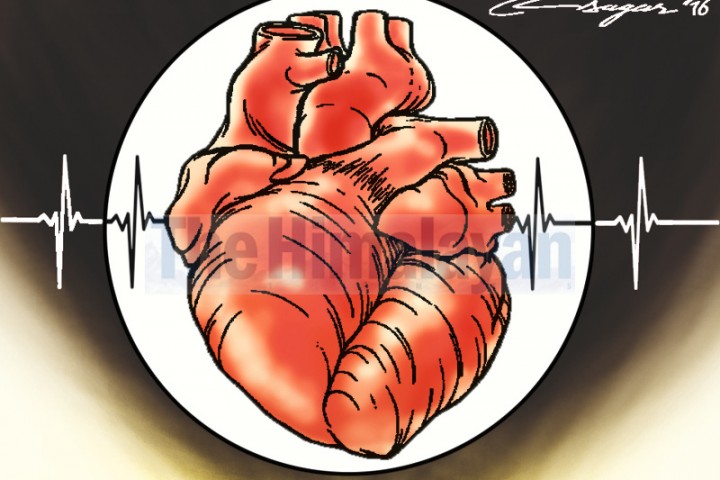50 heart patients benefit from RFA procedure

Hospital for Advanced Medicine and Surgery has treated 50 heart patients using electrophysiology with radio frequency ablation procedure in the last five months.
Abnormal heartbeats of patients were corrected without surgery using the procedure.
It is the second hospital in the country to provide the service after Shahid Gangalal National Heart Centre.
The treatment procedure was set up in the hospital five months ago.
“Electrophysiology is a test performed to assess the heart’s electrical system or activity, and is used to diagnose abnormal heartbeats or arrhythmia,” said Roshan Raut, senior consultant cardiologist at HAMS.
The hospital used catheter ablation — a procedure that uses radio frequency energy, which is similar to microwave heat energy — to destroy a small area of heart tissues that cause arrhythmia. Destroying such tissues helps restore the heart’s regular rhythm. Radio frequency energy from 20 to 40 Watt is delivered in the form of a continuous wave form. This energy helps destroy the tissues that cause arrhythmia, said Raut, during a press meet organised at the hospital today.
Abnormal electrical signals can originate in different areas of the heart at any age. It could be congenital or could appear following a heart attack.
This procedure is used to diagnose and destroy the origins of such abnormality.
“The procedure uses catheter to map the electrical activity in the heart. The test is performed by inserting catheters and then wire electrodes, which measure electrical activity, through blood vessels that enter the heart,” said the doctor.
A small incision is made in the groin. A special RFA catheter is inserted into the vein and guided up to the heart using x-ray screening. With catheters in place, the heart’s electrical activity can be recorded from inside the heart and the tissues that are responsible for rhythmic disturbances can be located. The tissues are then destroyed, the doctor explained.
The hospital has been using 3D electrical mapping to diagnose the origins of uneven heartbeat.
The advantage of the procedure is that the patients need not undergo surgery, they do not suffer from pricks and pains of injections and do not have to stay in hospital for a long time.
Complication can arise in the procedure as heartbeat of some patients can drop drastically. But that is very rare, added the doctor. The procedure can be used in patients of any age and the treatment is affordable with costs ranging from Rs 70,000 to Rs 200,000.
According to the doctor, it is a lifetime cure. One even doesn’t have to take any medicines for uneven heartbeats after undergoing the procedure.




